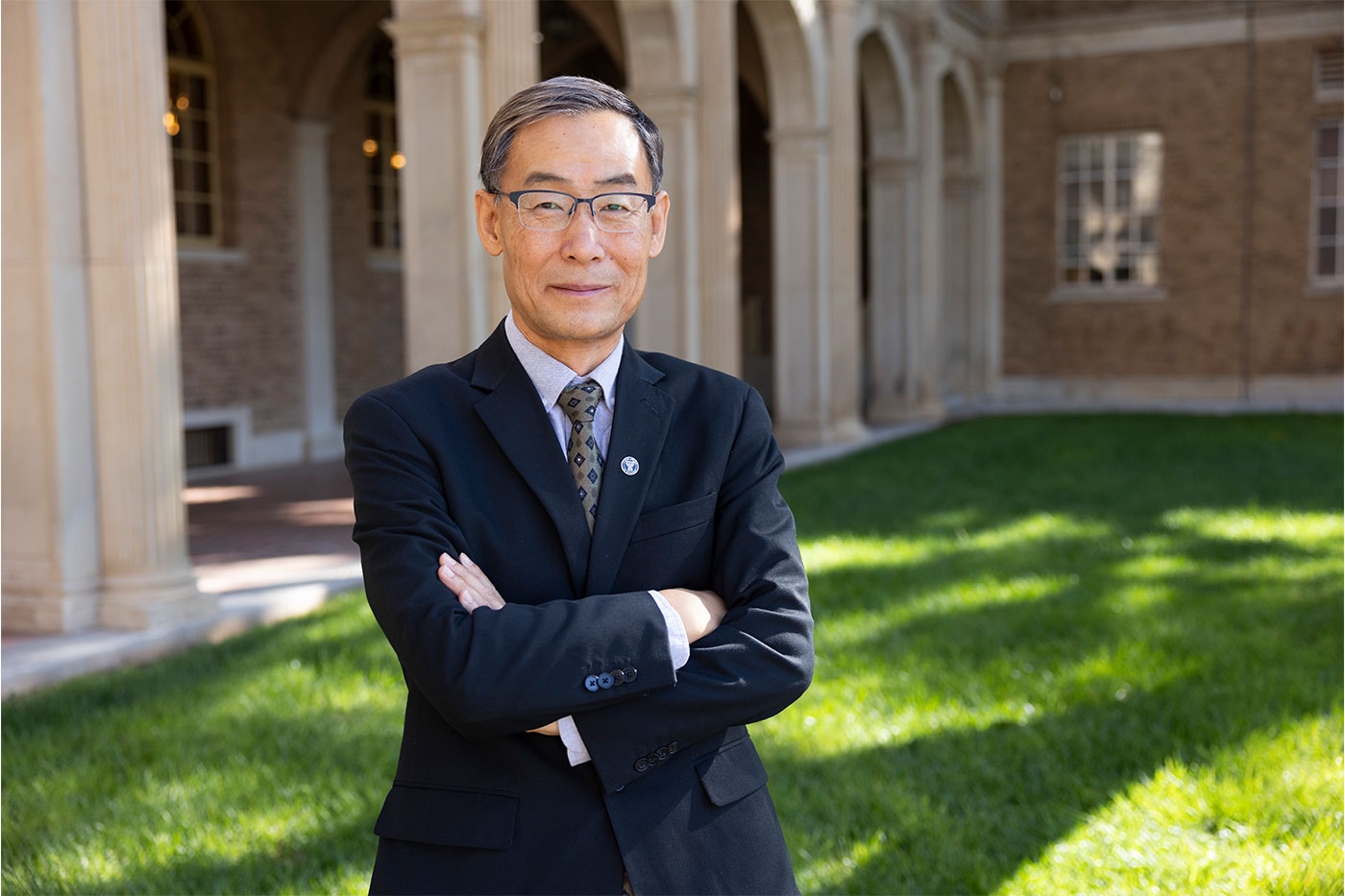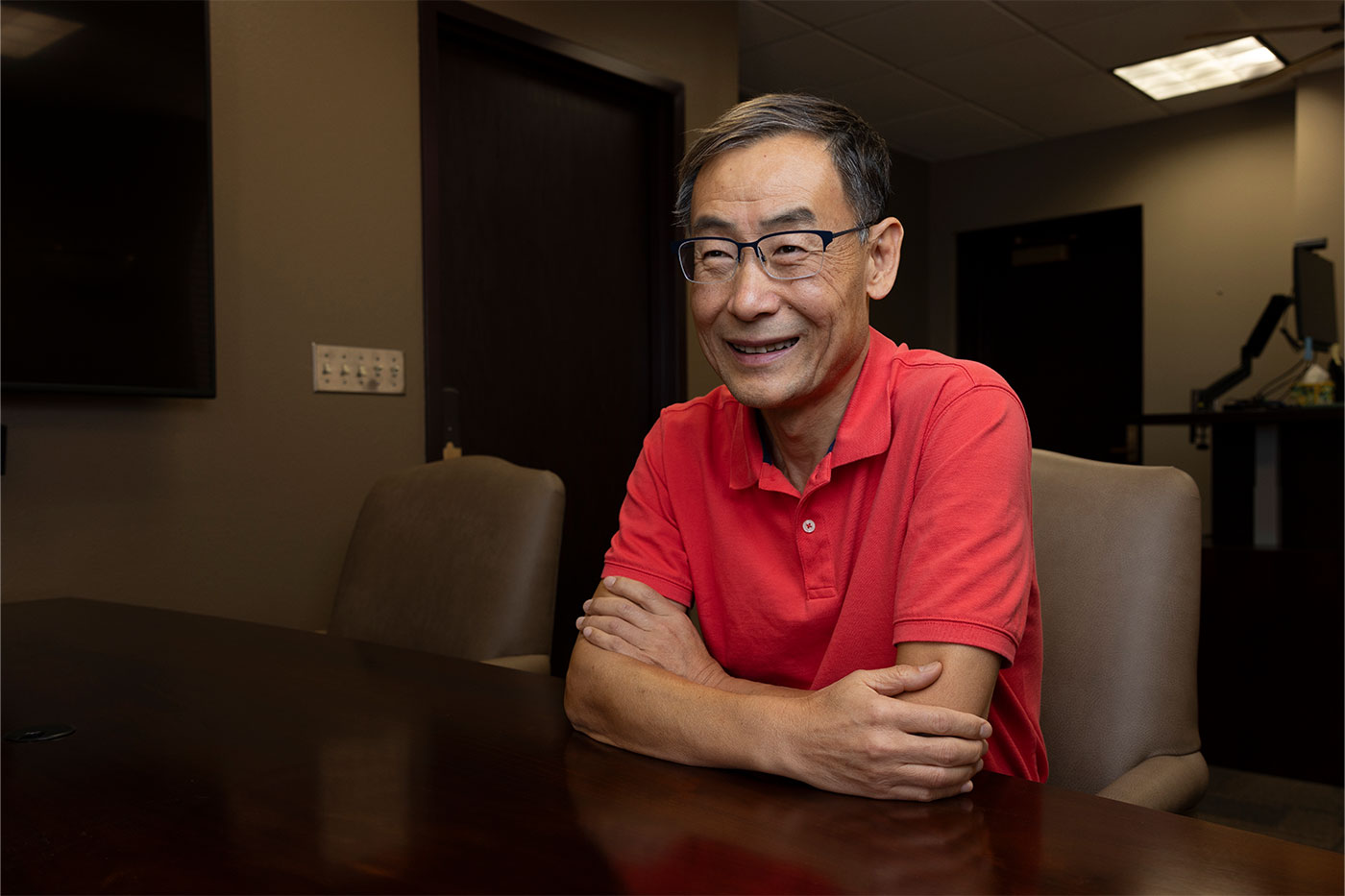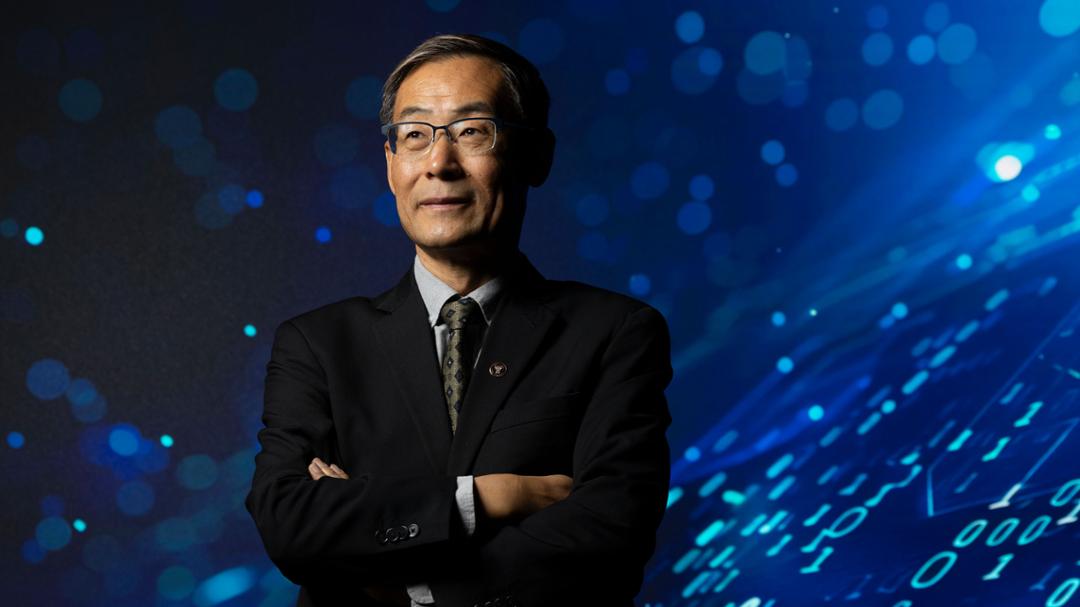The new chief information officer has hit the ground running and possesses a bold vision for how his office will ensure technology serves the university community.
Lin Zhou did not require a hard sell as far as deciding to come to Texas Tech University. Its vision and his passion were a perfect match.
Both constantly strive to push the boundaries of innovation. Both have a deep appreciation for the value of strategic thinking. And maybe most important, both are laser-focused on developing pathways for student success.
No wonder Zhou is all smiles as he talks about his role as Texas Tech’s vice president for information technology and chief information officer (CIO). He hit the ground running from the moment he officially began his new duties Sept. 23.

“The first thing that attracted my attention here was the strategic vision of President (Lawrence) Schovanec,” he said. “It is very succinct, which I like, and has a focus on three priorities: student success, research and innovation; and community impact. The university has the scale and – very importantly – good people, and that attracted me here as well.”
Zhou brings a bounty of impressive credentials to Texas Tech that spans 25 years and includes leadership roles at blue-chip companies and within higher education. Prior to this position, Zhou was senior vice president and CIO at The New School in New York City.
“Dr. Zhou's leadership will be instrumental in advancing our mission at Texas Tech and enhancing our impact on the community,” Schovanec said. "The CIO role is crucial to strengthening our teaching and research activities. Dr. Zhou's experience and enthusiasm make him the right person for the job."
"We cannot stay where we are. Standing still equals falling behind.”
Zhou joined The New School in 2019 and was responsible for driving the university strategy for information technology, including creating the institution’s quantum initiative and founding the school’s innovation center. Prior to that, he achieved groundbreaking results during a 20-year career with IBM, where he led IBM Watson Education from a startup to a global leader of artificial intelligence (AI) in education.
Zhou expects to be similarly energetic at Texas Tech, where he will ignite one of the university’s most visible and critical enterprises.
“I am fortunate that I have a good team here,” he said. “I also have great support from leadership, and there is a high expectation here at Texas Tech, which is one of the things that keeps me going.”
The CIO sees his office from three apertures. Firstly, from the traditional operational standpoint, handling the multitude of responsibilities that are part of the everyday experience on a college campus, including telephones, computers and networking. There is a second, equally important, customer-centric focus emphasizing trust- and relationship-building. Last but not least is leveraging technology to drive business results.
“We are here because we serve our customers,” he said, “and they are our faculty, our staff, our students and our alumni. That is very important for the university community to know. We will look for ways to leverage technology to solve problems and create new frontiers. That is critical for researchers, students and faculty.

“Technology cannot be thought of as a service only; it is everywhere, and it is the driver.”
The clock already was moving the first time Zhou arrived in his office on the second floor of the Administration Building. His early work has been focused on listening, learning and building relationships, but this important undertaking is part of a 100-day plan that will unspool in parallel fashion.
Likewise, he plans to schedule a campuswide town hall. In parallel, he and his team will gather feedback to baseline and measure IT’s performance, providing transparency, inclusion and accountability.
“I want to form partnerships with everyone,” he said. “If you listened to Dr. Schovanec’s ‘State of the University’ speech, he wants us to push the boundaries."
He plans to do his part to advance Texas Tech’s educational mission as well. Zhou has received an academic appointment and will interact with students and partner with faculty and researchers.
It is one more aspect of the job he is excited about; the opportunity to influence and shape young minds that one day will change the world. After all, he has been teaching throughout his previous roles, gaining decades of experience along the way.
“To me, teaching is not optional; it is necessary.”
“Without our students, we cease to exist as a university," he said. "For administrators like me, we should have a direct connection with students, and that connection is academic pursuit. Being able to leverage what I have learned in the industry and bring it into the classroom is, I think, a powerful thing for students.”
Zhou holds a doctorate in physics from the University of Glasgow and brings extensive knowledge in quantum computing, AI, blockchain, cloud computing and technology standards to his new position. He also holds an undergraduate degree in physics from Nanjing University in China.
His business acumen, technological know-how, and educational background provide a trio of complementary skills that will serve him well in this role. Through the years, Zhou’s work has earned serious acclaim, including a gold prize from the Wharton-QS Reimagine Education International Competition. His work also has been featured by Discovery Channel TV.
“I have been heavily involved in technology in different areas, and I also have experience on faculty directly interacting with students,” he said. “I think I bring an understanding of cutting-edge technology and disruptive thinking. I also have a background in research, and I believe one of the things we need to do is help our students be prepared for a complex future.”
As reliance on technology becomes more prevalent, the landscape also becomes more populated with threats from cybersecurity breaches to nefarious uses of AI.
“We will continue to increase the level of protection for the university, but that is a job that will never stop,” he said. “The bad actors will become more sophisticated so we must always be at least one step ahead of them. This is not a choice; it is something we must do.”
Zhou understands the threats are real, but he also knows every challenge is accompanied by the chance to learn and grow. He believes Texas Tech is perfectly positioned to capitalize on the new doors technology will open.
“I think the opportunities are bigger than the threats."
"We will find ways to leverage technology to raise our educational standard and broaden student career pathways.”
Technology also will come into play as Texas Tech grows its business in terms of expanding on the record enrollment announced earlier this fall, attracting additional funding to the university’s burgeoning research enterprise, and expanding other ambitious academic initiatives.
Finally, Zhou sees technology as critical to elevating the university’s brand awareness through strategic participation at places as varied as legacy media to international conferences featuring higher education thought leaders from around the globe.
While those are important objectives, Zhou says the top priority right now is immersing himself in the Texas Tech culture and learning everything as quickly as he can or, in his own words, “drinking from the firehose.”
“I am talking to leadership, to the (faculty, staff and student) senates, to the deans and to the colleges and faculty,” he said. “I am doing that because I want to build trust and integrate myself into the university. Without trust, nothing happens. We are going to work together, and we are going to create amazing things for this university.”

